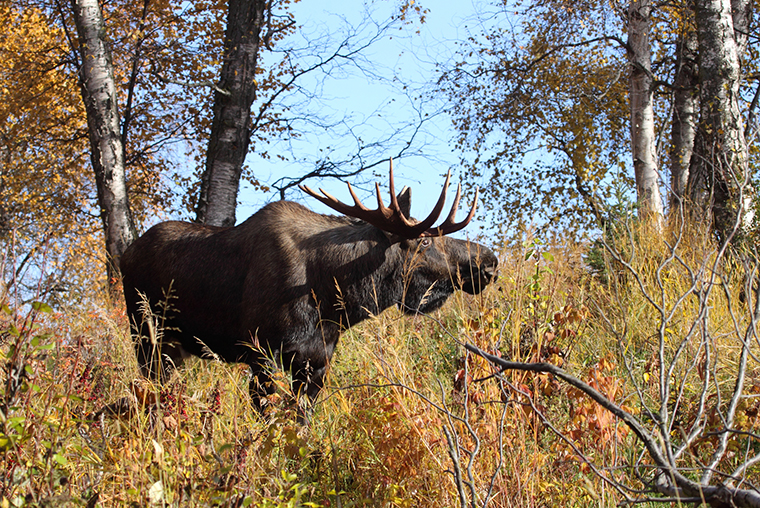
Long-awaited changes to moose hunting regulations were announced by Natural Resources Minister John Yakabuski on Feb. 25. The changes, informed by public consultations with the Big Game Management Advisory Committee (BGMAC) and comments on the Environment Registry of Ontario, will be implemented over the next two years.
Starting this year
Starting in 2020, calf tag quotas will be set in Wildlife Management Units (WMUs) 37, 40, 41, 42 and 47. To hunt calf moose in those WMUs, a hunter must apply for and receive a calf tag through the draw.
Additionally, the calf season is being extended in all nine WMUs with a calf tag quota (37, 40, 41, 42, 47, 48, 55A, 55B and 57) and calf tags issued for these WMUs will be valid for the bow and gun seasons.
Autumn of 2020 will also feature new bow hunting seasons and quotas for moose in WMUs 46, 47, 49, 50, 53, 54, 56, 58, 59, 60, 61, 62 and 63. The new seasons (WMUs 46-50, 53-63) will be seven days long and begin on the first Saturday in October.
In WMUs 27, 28, 30, 31, 32, 33, 35, 36, 37, 39, 40, 41 and 42, where separate bow hunting seasons already exist, separate tag quotas for bow and gun hunts will be set. These changes will ensure all WMUs with separate gun and bow seasons will have separate gun and bow quotas.
Big changes next year
In 2021, hunters will have to apply for tags as individuals, rather than as part of group applications. Bull tags, cow/calf tags, or calf tags will be available. WMU-specific calf tag quotas set across the province in all areas where moose hunting is permitted.
Bull and cow/calf tags will be season-specific (either bow or gun season), but calf tags can be used over the full length of the season within that WMU. Tag transfers will be heavily restricted under the new process.
Starting in 2021, a resident moose hunting licence will cost $35. This will not come with a tag.
To be able the hunt moose with the licence, a hunter must either successfully apply for a tag or arrange to party hunt with a successful applicant.
A moose hunting licence need not be purchased to apply for a tag.
New approach to tags
Tag allocation will be based on a new point-based approach. A $15 application fee will be required to apply to the moose tag allocation process, in which a hunter’s draw history will be used to determine the number of points they have accumulated.
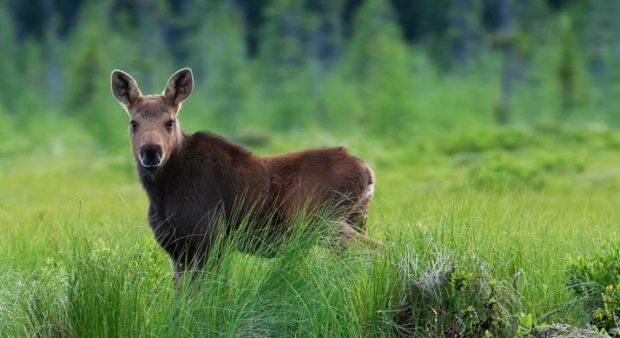
Points will be awarded based on the total number of years a hunter has applied and been unsuccessful in the draw. Being issued a tag through the draw or receiving a tag transfer will reset a hunter’s points to zero in that year.
A detailed description of the process will be available later in 2020 at Ontario.ca/moose.
If a hunter claims a tag they are awarded through the allocation process, they would be required to purchase a licence and their tag. Calf tags will be $30, cow/calf tags $150 and bull tags $200. Non-residents will pay a higher moose licence fee and the same tag costs.
Starting in 2021, non-resident landowners and immediate relatives of Ontario residents will only be able to acquire their own tag to hunt moose by purchasing a hunt from a tourist outfitter.
A non-resident who is an immediate relative of an Ontario resident who holds a moose tag, may purchase a non-resident moose hunting licence to party hunt with their relative.
Hunter concerns heeded
Due to concerns expressed by hunters in southern Ontario regarding the timing of the hunting season since it was changed in 2017, the season will be shifted back to begin once again on the third Monday in October. Also, current party hunting rules for moose hunters remain unchanged.
Recognizing the importance of the hunt
“We’re taking a smarter approach to moose harvest management to deliver on our commitment to make moose hunting fairer and more accessible, while also ensuring the sustainability of our moose population,” said Minister Yakabuski.
“Our government recognizes the importance of moose hunting to Ontario families and communities, and we want to ensure Ontarians have opportunities to get outdoors and enjoy our natural resources today and long into the future.”
According to the MNRF, moose hunting adds more than $205 million to the province’s economy.
The OFAH take
OFAH Biologist Dr. Keith Munro said the changes were driven by moose hunters.
“They have voiced their concerns for many years and the Ontario Federation of Anglers and Hunters appreciates that the MNRF has listened. When the process began, we told the MNRF that reception to the changes would be mixed, because hunters hunt moose in different ways province-wide. In particular, restrictions on party size were the most contentious of the proposed changes and the MNRF chose not to implement changes in that aspect of the hunt.”
The OFAH will hold the MNRF to its commitment to review the changes in three years so that any concerns are addressed. As the changes are rolled out, the OFAH will continue to act as a pipeline for hunters to provide feedback to the MNRF. Our goal is to ensure that the new system is hunter-friendly, results in increased hunting opportunities and benefits to the moose population, and does not present any barriers to participation.”


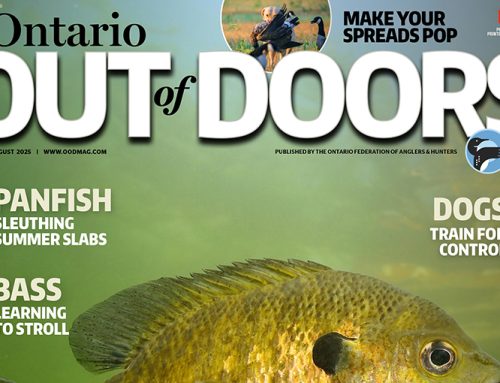
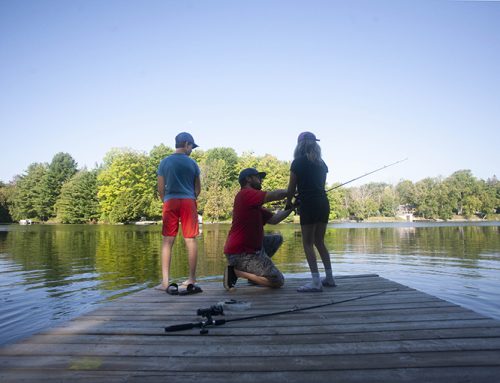
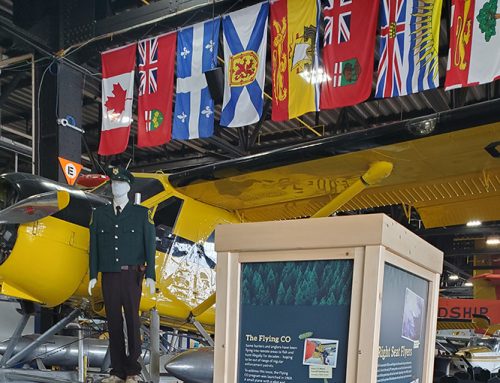
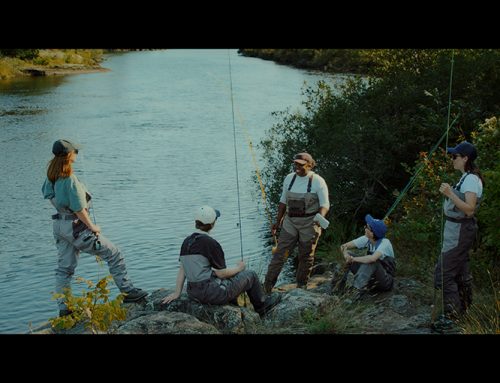
I realize some of this proposal will seem positive to most,especially the outfitters ,who get preference as usual
As always it’s a big cash grab
So you had better get Mr,Trudeau and mr Blair to back off on their proposed gun control plans
And target the real offenders of crime and leave us licensed law abiding citizens alone
204 million dollars in revenue just for Moose
How about all the rest of deer ,small game,waterfowl,and trapping revenues plus all the spin off business created by us sportsmen
Gotta be at least mega millions and that’s just ONTARIO
You win. I’m done hunting.
Blind leading the blind
Moving away from group allocation is a huge missing in my opinion.
How many people have harvested a moose by themselves, I would say 99% are done with more than one person involved.
I do agree with the way the tags will be allotted, but for the cost which has greatly increased for the single hunter I do not agree.
It also appears unclear what happens if a group applies for and does not get a allotted tag. Does this mean that the group is denied the traditional opportunity because all groups of animals must have an allotted tag?
Sounds like something ” Chuck Jones ” came up with .
(He’s the guy that completely screwed up the moose management system back in 1986.)
Why when the ministry makes changes to help protect our moose populations does it have to be a cash grab??? There is no application fee for a controlled dear hunt…. so why for a moose??? In 2021 we will have an application fee a license fee and now to a tag fee…. This is now becoming like in Europe only a rich mans sport. I still see the denial of unrestricted harvest for natives apparently has no effect on our moose population..!! Also I still don’t see any sort of mandatory reporting for natives. So how do they account for those in portent stats and why are they not accountable??? The rules for a hunter are becoming so complicated it is almost impossible to keep them in check. Soon I will have to hire a lawyer before I can go hunting, or get native status because apparently it all doesn’t matter then…
Does this mean that the tag receiver is the only one to pay for tag the other hunters only pay for licence? It sounds like a cash grab and still doesnt regulate the havest.
The system for 2021 appears to be a money grab, not a conservation move.
In the Kearney (zone 50) area hunters used to shoot 100 moose every other year.
When moose hunting switched to every year the moose population started going down drastically in zone 50.
Probably less than 20 moose were shot in the Kearney area last season.
Another thing that has caused a decline is logging roads. This has given easy access to hunters that would never walk to the same places to hunt. The mnr should gate the roads or take the culverts out.
So I do not agree with the new proposal AT ALL. It is a money grab for sure without a doubt. Who ever thought of this ….. should have their head read. This does not benefit any active moose hunter. So to all hunters out there this is just a start. Deer a d bear will be next. Shame on the government.
⁰
“OK” $30 calf–$150.00 cow–$200.00 bull. it sounds like your selling moose at a auction. if moose sustainability and population is in trouble why are you increasing opportunities. cow and calfs should be protected as much as possible. where do you think the future population comes from. With Metis–harvesters–and natives, your quotas are already filled. Your system has nothing to do with sustainability and population. its all about $$$$$$$. i do not see a smarter approach. It should not be about revenue. Please protect our moose. thank you
Definitely a fairer system but as usual government increasing the cost,just another tax. There will be a decrease in hunters.Way too expensive to everyone I have spoken too. My moose hunting days are over after 55 years. Soon all hunting and fishing will be too expense for the average guy!
Is there a moose season for unit 38, and if so how many tags are there?
Moose season for WMU 38 is Oct 17 to Nov. 15 for residents and Oct. 19 to Nov. 15 for non-residents, according to the newly-released Hunting Regulations Summary. The number of tags is not information we would have.
I hear complaints from hunters about not getting a adult tag for years but applying in zones where there are few tags but lots of hunters applying 10 or20 tag and 4 to 5 thousand hunters give me a break not to smart no reason to complain . I might be wrong but I believe the new system will reduce the number of hunters as it will no longer take 5 to say 12 pool 1 hunters to get a adult tag
In the regs I can’t find a hunt code for wmu 59 so as to be able to apply for the archery only moose draw for 2020 is this a typo mistake on your and the ministry and there is no archery only for moose in 59?
Hi Andy, you would want to call the MNRF directly for that query. They can be reached at: 1-800-387-7011 or 1-800-667-1940.
Also Andy here’s a resource you may find helpful:
https://ero.ontario.ca/notice/019-0405
I have been a landowner within the kawartha highlands provincial park since 1982. Have applied many times for a moose tag there and never successful. Every recreation camp that I know of gets a tag or more every season and just wondering is owning a camp a guaranteed tag?
Article and regulations state there is an adult and calf gun season in WMU 58 and an adult and calf archery only season in WMU 58 as well, however I can’t find the draw codes for that WMU anywhere. Anyone else run into that problem?
Way to price hunting out of reach of the average Canadian, There will be lots of Moose to hunt when we all say I’m out. It cost almost 1000.00 to moose hunt when you factor in all the expenses. Maybe if you live in the north it’s not costly but to come from southern Ontario it’s expensive.
How about 10 years no hunting calf or cow, EVERYONE, NATIVES INCLUDED. This makes more sense than driving us out of hunting with inflated costs. I guess you are making more room for the rich to hunt.
I got my tag this year, I’ll make sure to enjoy my last hunt and my last $25. licence. You can get a lot of cow for 1000.00
Good luck
I’m a former Ontario resident living in Quebec. I prefer hunting in Quebec because the moose hunting opportunities are more straight forward. You buy your tag for the zone/ wmu you intend to hunt in and you’re done. 2 tags per bull 4 tags per cow/calf. Another subject I’d like to talk about are the outrageous fees a non resident must pay to hunt with relatives or friends in another province. Why are non province residents gouged to hunt in another province. As far as I’m concerned I’m a Canadian citizen and should not be over charged to hunt in a different province than the one I live in. It’s expensive enough to go hunting why are they penalizing out of province hunters.
I see this differently, if I pay $15 to enter the draw and don’t draw a Cow or Bull, then I’m only out $15 if I so choose not to hunt Calves.
If I draw, I pay for what I draw. And my camp splits the cost of the tag.
This to me seems cheaper in the long run than the $54 I’ve been paying for the past two decades and have yet to draw anything.
Am I wrong? If I choose to hunt Calves then I have to pay the difference for the calf tag $30, bringing me up to the same price as before(after tax), for the same tag as before. Unless I don’t hunt Calves, then I just saved $40 over the last system every year.
If a person does not get a tag for moose can that person still get a moose licence to hunt in a party? I’m asking cause I know a “group” that are hunting for moose and only one of them has gotten a tag. My friend says it’s ok but if they don’t get a licence then they obviously can’t. What’s the deal?
Chris, here’s a resource for you: https://www.ontario.ca/document/ontario-hunting-regulations-summary/moose
Please note the moose hunting requirements section.
Anyone wishing to hunt moose in Ontario must have the following:
Outdoors Card
moose licence listed on your licence summary
moose tag (validated for the appropriate season/firearm, area, and type of moose), or be party hunting with a person who has a valid moose tag, and
proof of firearms accreditation if you are hunting with a gun
Just looked at my draw entries and results on the MNR site. It does show my entries back to 1993 and up to 2020. I have a question as it does show a “Group Sucessful” 6 years ago, so would that reset my point total to zero that year? I personally was not success for all 17 years. I will need to verify if I was in fact a member of a group in any year they show me as group successful.
Rich, we consulted with Dr. Keith Munro, Wildlife Specialist with the OFAH, to fully consider your question. He writes,
“Group success in the past does not impact a hunter’s point total. Hunter point totals are based only on their personal draw success going back to 1993, when the Outdoor Card was instituted. Hunters will start with one point for each year they applied to the moose draw since receiving an adult tag, whether through the draw or via a tag transfer. Receiving a surplus tag or a calf tag in one of the WMUs with calf tag quotas would not have reset a hunters point’s. The point total is cumulative rather than consecutive, mean that gaps in applying would not have reset a hunter’s points total.
In the example provided by Mr. Hollingsworths, he will be applying in 2021 with 17 points.
In 2021, all hunters will apply as individuals and most tags will be allocated based on points. Therefore, group success will no longer be a thing under the new system.”
I hunt with the same 6 guys each year. If nobody draws a tag are we out and can’t go hunting?
As with last year, you need to draw a moose tag to hunt a moose. Here’s some more information for 2020/21 as found in the news story provided: https://www.ontario.ca/page/moose-management-review#section-2
It may also be worth noting that some lodges/outfitters provide limited tags within their packages.
I guess I’m done, I don’t party hunt. So I have just been priced out.
This was not lead by hunters. No hunter came up with a $250 tag price, I gaurentee it.
One way to make us stop hunting is to price us out. Good job, you win.
I’m done hunting moose. You did it.
I hope you lose all the revinue you hoped to gain. Thus Was about govt greed not moose conservation.
I think the new tag system is crap. Based on the 2020 info from the ministry if stats. Did not change in wmu 41 there were 1388 first choices for one of 26 Bull tags. At that rate a individual would receive a tag every 53 years. There were449 1st. Choices for one of 20 cow tags. A success rate of one every 22 years. In wmu 31 there was 1079 1st choices for 1 of 45 Bull tags. That’s one every 24 years. There were 304 1st choices for one of 32 cow tags. That’s one every 10 years. This is based on applying as a individual and this is said to be an improvement to the system. A hunter who has applied for 15 or 20 years and not get a tag is applying in wmu.s with little chance of getting a tag and not letting the system work for you. Keep applying in areas like 41 and 31. Things will not change for you with this great new system. There is only going to be fewer hunters. When our group gets a moose it is a bonus. It is a great holiday moose or no moose. Shame on the clowns in charge
Can someone who was unsuccessful in the 2021 moose tag process, still moose hunt with a friend who was successful?
What are the hunting dates for moose in WMU32 area?
Gun: Oct 16 to Nov. 15 for residents, Oct 18 to Nov. 15 for non-residents.
Bows only: Sept. 25 to Oct. 15 for residents, Sept. 25 to Oct. 15 for non-residents.
This new moose hunting strategy is ridiculous and needs to change like for example anyone who shoots a cow that has a calf with her instead of harvesting the calf also as we used to do when calf tags were given with a moose licence now that calf is gonna be fed to the wolves nice f-ing nice plus my rifle has been hung up ever since this crap system started wtf everyone should have the right to hunt or at the very least two hunters to one calf tag would be something to think about implementing this is BS this system I get a tag in a few years maybe the what sell my rifle cause be dead or to old by the time another one comes my way pisses me off every year something has to change about this thanks northern Ontario hunter